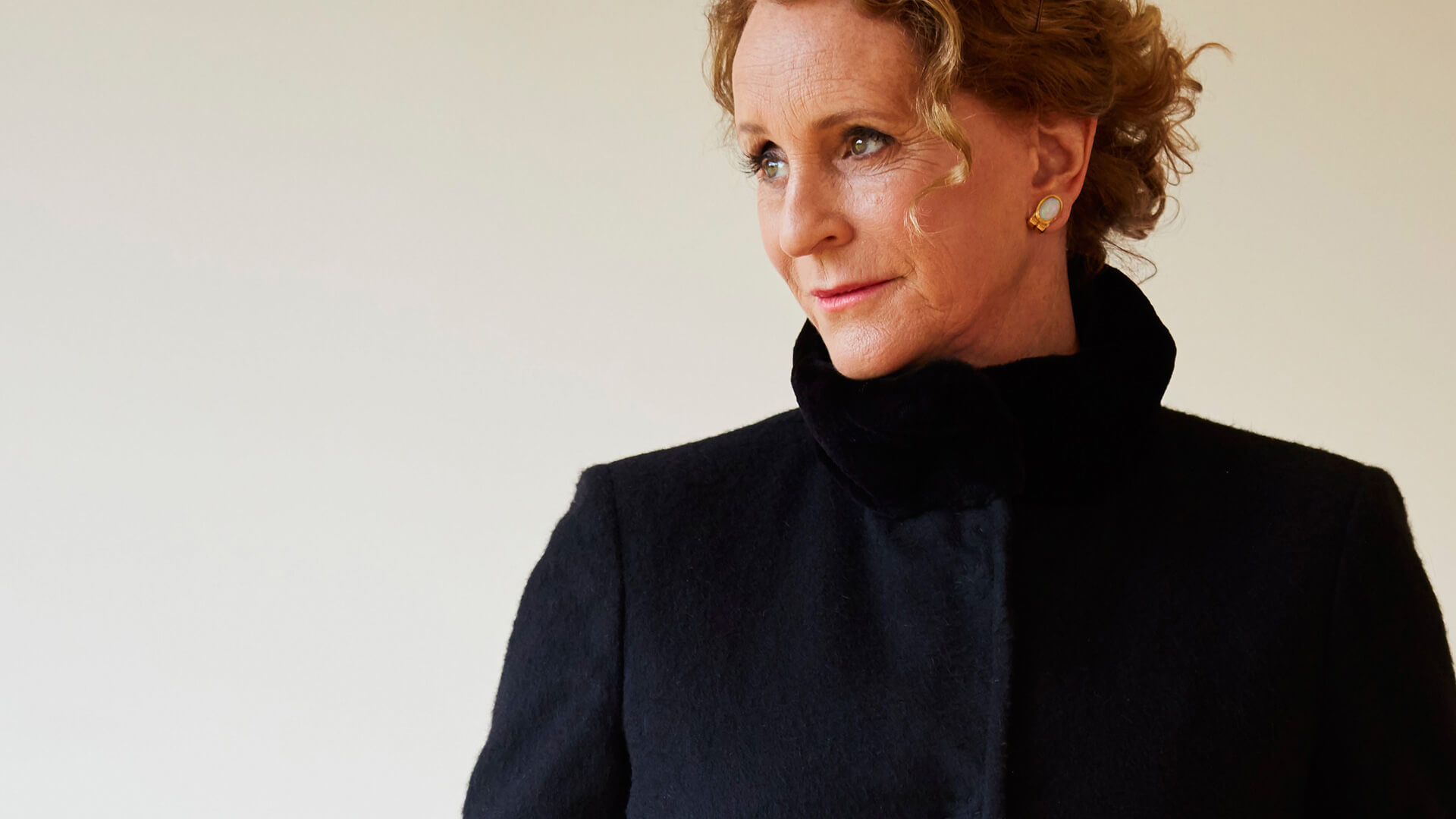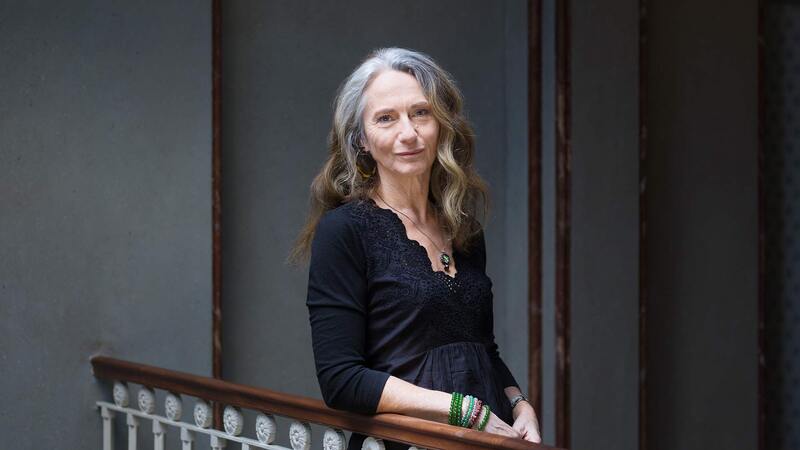You are viewing your 1 free article this month. Login to read more articles.
Philippa Gregory discusses the joys of writing historical fiction and her next project
The historical novelist whose affiliation with the Tudor period has made her a household name tells Alice O’Keeffe about her fascination with the era—and what she plans to write next
If there is one contemporary historical novelist indelibly associated with the machinations, the passions and the jealousies of the Tudor court, it is Philippa Gregory. Though she has written many books in her 30-year career, with settings ranging from the Middle Ages to the present day, she is best known for her Tudor series, which began in 2001 with the publication of the international bestseller The Other Boleyn Girl, and her Cousin’s War series, six novels about the Plantagenet line.
With her latest novel, The Last Tudor (S&S, July), Gregory returns to the Tudor court to tell the story of Lady Jane Grey, famously queen for nine days. She was set on the precarious English throne by the scheming of her father and her father-in-law after the death of her cousin, Edward VI, who succeeded his father, Henry VIII. But The Last Tudor does not tell Jane’s story alone. When Gregory started to research the novel—she always spends at least a year researching each one—she discovered the existence of two sisters. Jane’s younger sister Katherine is, Gregory believes, “little known to the non-specialist historian”, and the youngest Grey sister Mary (“there are plenty of Tudor historians who simply don’t know about her”) is now a footnote of history. The only contemporary history Gregory could find about all three sisters was Leanda de Lisle’s 2014 book The Sisters Who Would be Queen.
What is so wonderful about fiction, especially if you write it as I do, in the first person, is that you are there
The Last Tudor is written in the first-person present tense, Gregory’s signature style, and each third of the novel is narrated by a different sister, beginning with Jane. Although Jane is famous from the history books mostly for being a Protestant martyr, Gregory discovered “that in a sense she is a pawn, but where she becomes really powerful is in her refusal to recant and that is so interesting. You see a young woman in both roles, as the victim of male ambition but then absolutely as one who is determining her own spiritual destiny.”
Perhaps the biggest challenge of writing historical fiction is how to inject tension into a scene when often the reader already knows what is going to happen. “What is so wonderful about fiction, especially if you write it as I do, in the first person, is that you are there,” says Gregory. “In a sense it’s not as though I’ve taken the history and given it to the reader. It’s as if I’ve taken the reader and put them in the history . . . If a historical novel is successful then the reader isn’t saying, ‘Hang on a minute, I know this’, or, ‘I’ll look this up’, they are caught up in the narrative.” Another challenge, she adds, is ending a novel with something other than death. “A biography has to do that to be a full biography, but a novel [should end] at the end of the arc of a narrative.”
I think tyranny is terribly interesting to everybody, but particularly to historians and novelists
Although The Last Tudor has the story of the Grey sisters at its heart, dominating their lives—and so, the novel—is the capricious, mercurial Queen Elizabeth I. Gregory has written about Elizabeth before, but says “what was really new to me was to see her through the eyes of women who were completely dependent upon her favour just for their safety”. All the women of the court were subject to Elizabeth’s whims, as they could do nothing without her consent. As queen she could control where they lived, who they could marry and, sometimes, how they would die.
I wonder what it is about the Tudors that have made them so extraordinarily popular with readers. Gregory has a couple of theories. “They are very big personalities and it’s a time where the kings and queens are tyrants, so the personal is political in a very real way. If Henry VIII doesn’t like you, it’s not just that he doesn’t like you, you could well be found guilty of treason and you won’t even see a jury. You can be executed, literally, on his whim. I think tyranny is terribly interesting to everybody, but particularly to historians and novelists.”
She also points out that “the Tudors” tend to be taught in primary school. “It happens to be a period that everyone is quite informed about. Surprisingly enough, that doesn’t mean that they don’t want more—it means you create a readership.” People like to read more about what they are already familiar with, she thinks, as they have a “foothold” on the history. But the UK primary school curriculum can’t explain the appeal Gregory’s novels have for readers around the world. She sells in great quantities in Turkey, Korea and Japan, to name just three territories and foreign rights for her novels have sold in an impressive 36 territories in total.
Judging by her domestic sales alone, Gregory has a very wide readership. She takes particular pleasure in the readers who tell her that, inspired by her fiction, they are now reading history books—and some go even further. “If I’m at an event with 400 people, two of them will tell me that they were inspired to go to university. And that’s really wonderful.”
Gregory herself was a mature student of history at Sussex University; she went on to read for a PhD at Edinburgh University. She planned a career as an academic but when she graduated in the mid-1980s, prime minister Margaret Thatcher had frozen recruitment for all academic posts. So instead she wrote her first novel. Set in the 18th century, Wideacre follows the fortunes of Beatrice Lacey, who has no right to inherit to her ancestral home, Wideacre Hall, but is determined to possess the land. The novel sold at auction in the UK and in the US, and its success enabled Gregory to become a full-time novelist. HarperCollins published the 30th anniversary edition of Wideacre last month.
I think when historical novelists put a total fiction alongside a well-known history you can always see the join
Sales of her subsequent books were strong, but she broke through to another level with the publication of perhaps her best-known novel, The Other Boleyn Girl, in 1992. Reflecting on why the story of the two Boleyn sisters, Mary and Anne, who were rivals for Henry VIII’s affections, has proved so popular, she says “it was an unknown story attached to a very well-known story—and it was true. I think when historical novelists put a total fiction alongside a well-known history you can always see the join. One of the things people still say to me is, ‘It’s true, isn’t it?’ And it is! It’s an extraordinary story that got forgotten.” Adapted for TV and the big screen (with the only-in-Hollywood casting of Scarlett Johansson as Anne Boleyn and Natalie Portman as her sister Mary), it has sold 592,676 units in the UK to date.
But now Gregory has plans for something different. Having just signed a four-book global deal with her publisher Simon & Schuster—which will see simultaneous publication of the first title in that deal in the UK, US, Canada, Australia and India in September 2019—she says: “I’m going to write a series of novels which will start in the 16th century in rural England and will trace a family as they rise from rural poverty and the sludge of the late Medieval world into the empire.” The series will follow the family abroad to the US and Africa as they become a mercantile trading family. “A lot of the things that I’ve spent my life thinking about, like slavery, religion, the rise of women, prosperity, landholding, I’m going to encapsulate in the story of this one family who will be completely fictional.”
So is The Last Tudor also her last book about the Tudors? She laughs, “Never say never. Let’s just say there are a couple of Tudor characters I’d be sad to leave unsung.”











